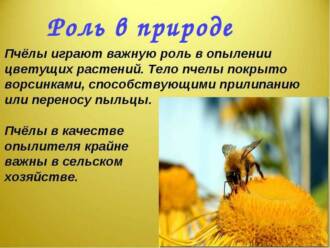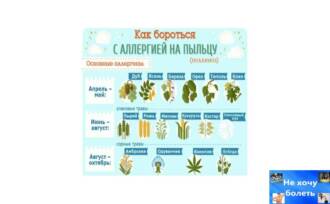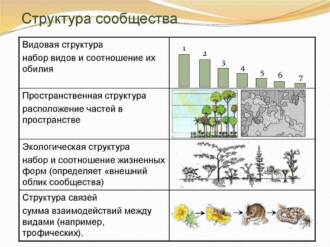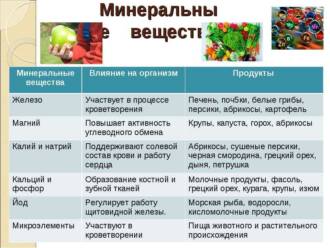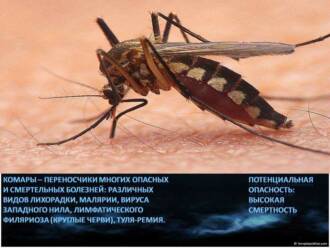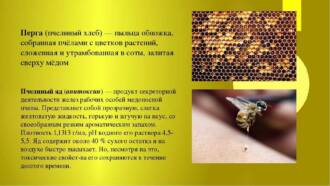
In the natural world, there is an endless variety of species and organisms that depend on each other for survival and development. One of the key components of this relationship is nutrition. Food is the main source of energy for all living beings and plays an important role in maintaining biodiversity.
Pollen, small granules containing the male germ cells of flowering plants, plays an important role in the nutrition of many organisms. For some insects, such as bees and bumblebees, pollen is the main food source. They collect pollen from flowers and use it to feed their larvae or for their own nutrition. In addition, pollen is also an important part of the food chain for many other animals such as birds and insects.
Snails, on the other hand, are important members of the ecosystem and perform a number of important functions. They are polyphagous animals and feed on various types of plants. Snails can be both herbivores, eating vegetation, and omnivores, eating both plant foods and other organisms. Their dietary habits have a significant impact on biodiversity as they can control populations of plants and other organisms.
Nutrition plays an important role in maintaining biodiversity by linking different species and organisms in an ecosystem. It is a source of energy for living beings and affects their behavior, growth and reproduction. Pollen and snails are examples of organisms whose diet is important for biodiversity. Understanding these relationships helps us better understand and preserve nature and all of its amazing life forms.
Pollen and snails: the role of nutrition in biodiversity conservation

Nutrition plays an important role in biodiversity conservation, especially when it comes to pollen-snail interactions. Pollen, the main food source for many insects, affects their ability to reproduce and survive. Snails, in turn, play a role in the distribution of pollen and the resumption of plant populations.
Pollen — are the smallest male cells of plants that are carried by air currents or attached to insects. Many insects, such as bees, wasps, and butterflies, feed on pollen as a source of nutrients and energy. They also transfer pollen between the male and female reproductive organs of flowers, facilitating pollination and plant reproduction.
snails also play an important role in the conservation of biological diversity. They are part of the food chain and feed on plant debris, including pollen. When moving from one place to another, snails can carry pollen on their bodies and inside their intestinal tracts. This contributes to the spread of pollen and the resumption of plant populations.
It is interesting to note that some snail species may be specialized carriers of certain types of pollen, making them important for the conservation of certain plant species.
Thus, nutrition plays an important role in the conservation of biodiversity through the interaction of pollen and snails. Pollen is a food source for many insects, which in turn carry the pollen and help plants reproduce. The snails, in turn, feed on the pollen and help spread it. Through this interplay of nutrition and pollen transport, biodiversity can be conserved and maintained.
Importance of pollen for plants
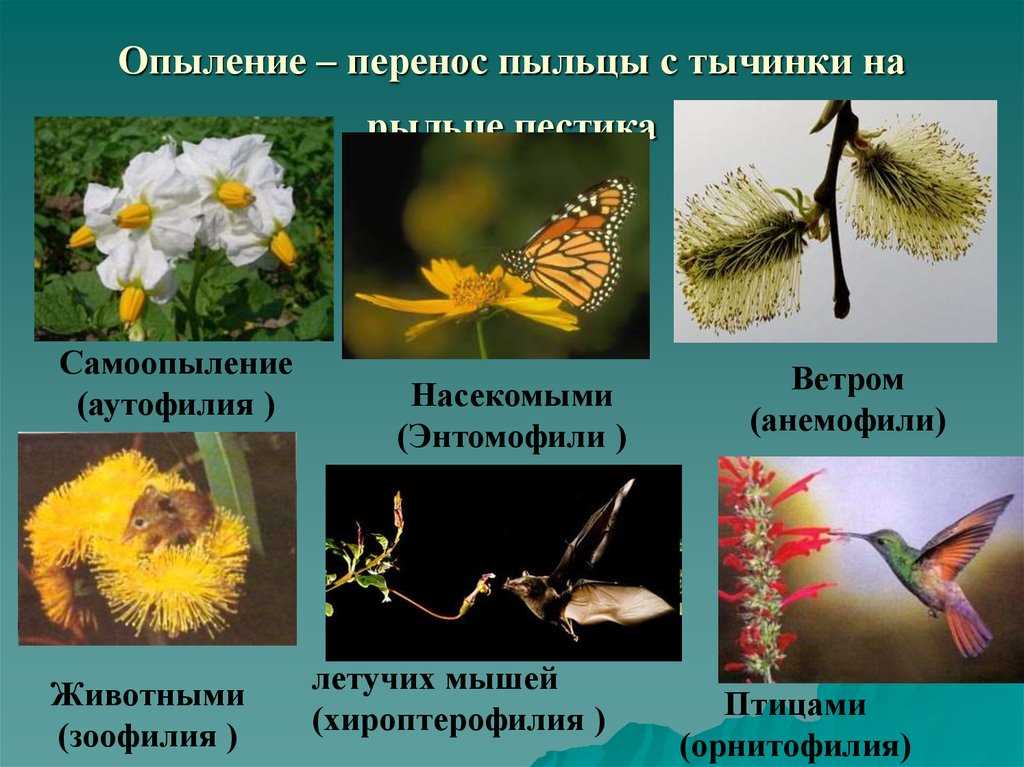
Pollen plays an important role in plant life. It is a male gamete and carries the genetic information necessary for the fertilization of plants. Pollen contains spermatozoa, which, upon contact with the female organ of the plant, the anther, are able to penetrate the pestle and fertilize the egg.
The value of pollen for plants lies in the possibility of reproduction. Fertilization of the egg by pollen sperm leads to the formation of a seed, which then develops into a new plant. Thanks to pollen, plants can reproduce and maintain their population.
It is important to note that pollen is also an important food source for some species of insects and animals. Some bees, carriers of pollen, collect it on their legs and use it as food for their larvae. Pollen also serves as a food source for some types of snails and other molluscs.
In addition, pollen can be carried over long distances by air currents and can be distributed to other plants, which contributes to their pollination and reproduction. Thus, pollen is essential for maintaining biodiversity and the ecosystem as a whole.
Interactions between pollen and snails
Interactions between pollen and snails are an important component of biodiversity. Pollen, being the main source of nutrition for many plants, plays a key role in their reproduction. Snails, in turn, are one of the main pollen distributors.
snails are a large group of mollusks that often live in forest and garden corners. They feed on a variety of plants, including flowers, leaves, and stems. In the process of eating plant foods, snails can stick pollen to their bodies and shells.
Pollen, falling on the cochlea, can be distributed over long distances. Snails move in search of food and can carry pollen from one place to another. Thus, they contribute to the pollination of plants and help them reproduce.
In turn, pollen is the main food source for many types of insects, including bees, wasps, bumblebees and other pollinators. Pollen falling on the body of the snail, they can collect and transfer to other plants, thus increasing the chances of pollination.
Thus, the interaction of pollen and snails is an important factor in maintaining biological diversity. The pollen carried by the snails contributes to the pollination of the plants, and the plants, in turn, are a food source for the snails. This relationship allows you to keep the ecosystem in balance and ensure the nutrition and reproduction of various species of animals and plants.
Impact of snail nutrition on biodiversity
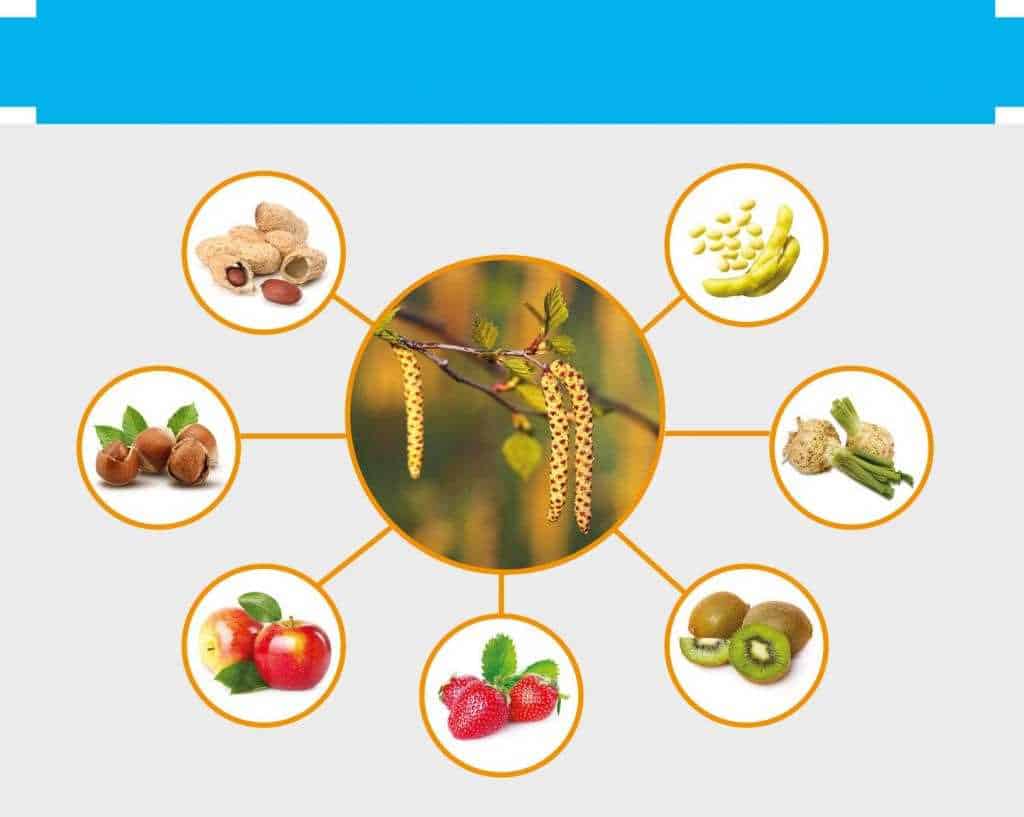
Snails are an important part of the ecosystem, and their diet has a significant impact on biodiversity. Snails are herbivores, meaning they feed on plant matter. Their feeding habits can have both positive and negative effects on the environment and other organisms.
The positive impact of snail nutrition
The first positive impact of snail nutrition lies in their ability to utilize and recycle organic material. Snails are decomposers and their digestive system allows them to decompose leaves, sticks and other plant debris. This helps clean up organic debris and improves soil quality.
In addition, snails may be key species in the food chain. They serve as a food source for many animals, including birds, lizards, and other insects. Their diet can help maintain a balance in the ecosystem and contribute to the conservation of biological diversity.
The negative impact of snail nutrition
However, the diet of snails can also have a negative impact on the environment. Some types of snails can be pests, feeding on cultivated plants and horticultural crops. They can cause significant damage to agricultural land and orchards, which can lead to a decrease in biodiversity in certain areas.
Overall, snail nutrition has a complex effect on biodiversity. It depends on the specific type of snails, their number and the ecological situation in a particular area. Understanding this influence helps manage snail populations more effectively and keep the ecosystem in balance.
The role of snails in the distribution of pollen
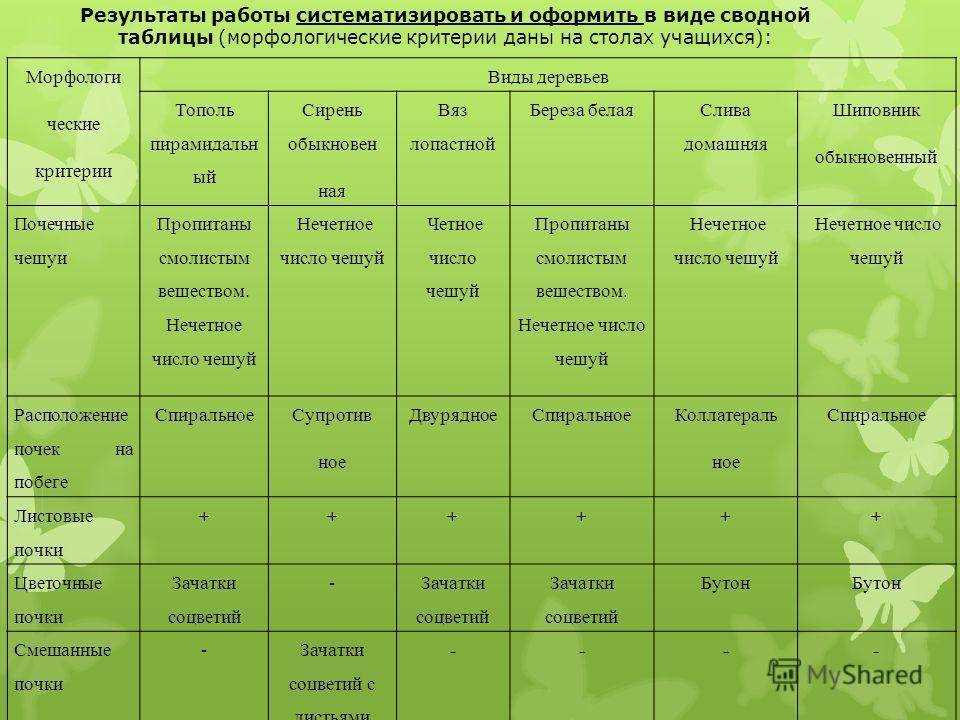
Snails are important participants in the process of plant pollen dispersal. They are actively involved in the transfer of pollen from one plant to another, contributing to pollination and plant reproduction. This process is known as zoogamy and plays a key role in biological diversity.
Snails feed on plant material, including leaves, stems, and fruits. While eating, they not only destroy the remains of plants, but also accidentally attach pollen to their bodies. This pollen can be transferred to other plants as the snail travels for food or simply walks on the ground.
Snails are an integral part of food chains, their activity contributes to the conservation of biological diversity. They act as pollen carriers, helping plants to pollinate and reproduce. This process allows new plants to arise and allows species to continue to develop and survive in the environment.
It is important to note that snails carry pollen not only on their legs, but also on their mucous bodies and shells. Thus, they can carry pollen over long distances, which contributes to a more efficient distribution of pollen and an increase in the chances of plant pollination.
The role of snails in the distribution of pollen is an important mechanism for maintaining biodiversity. They help plants reproduce and evolve, and help create new ecosystems and maintain ecological balance.
The Importance of Diversity in the Food Base for Snails
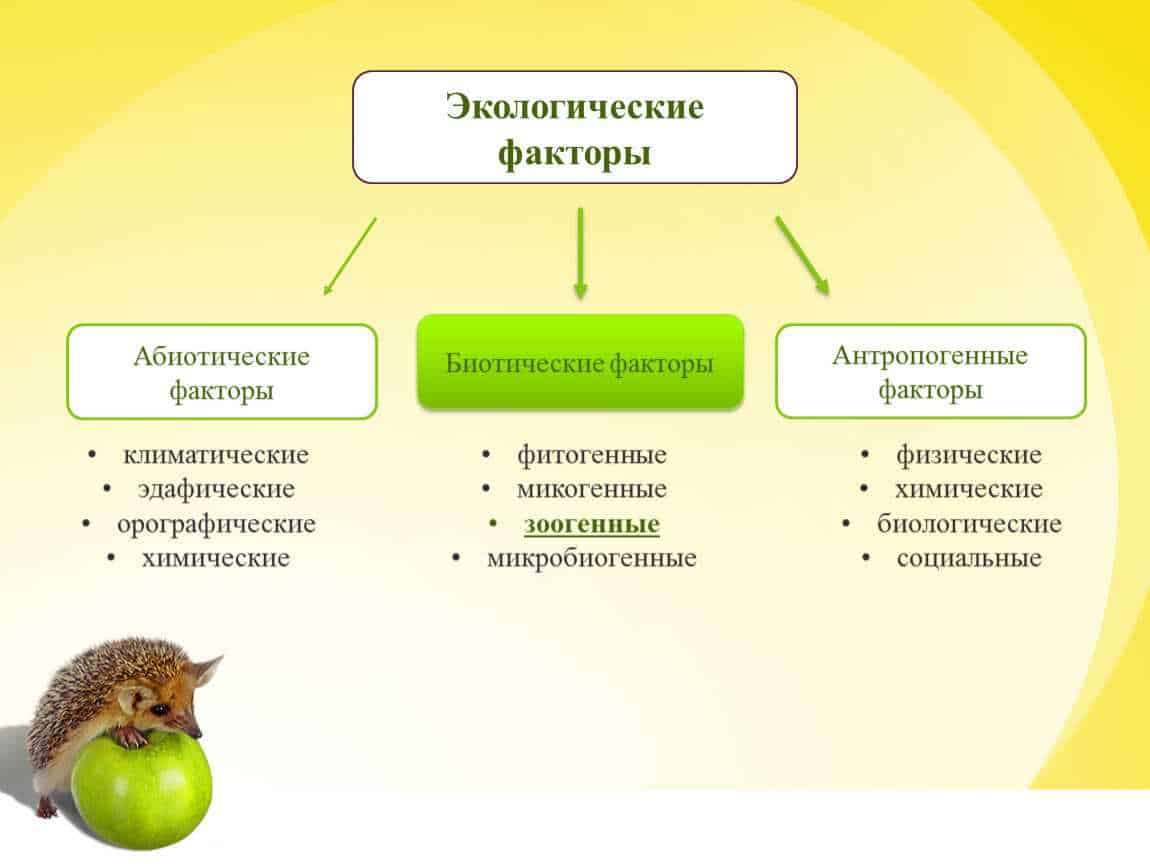
Snails are important members of the ecosystem and their diet has a direct impact on biodiversity. The diversity of the food base for snails plays a key role in maintaining their health and reproduction.
Snails are herbivores, they eat plant foods. However, snails may have preferences for certain types of plants, which can lead to uneven consumption of vegetation and a decrease in diversity in its composition.
The diversity of the food base for snails is an important factor in maintaining a balance in the ecosystem. Different types of snails may prefer different types of plants, which promotes uniform consumption and distribution of plant mass. This helps to prevent the occurrence of monocultural areas dominated by only one plant species.
In addition, the diversity of the food base for snails also contributes to the conservation of the diversity of other organisms in the ecosystem. Snails can be important links in the food chain and their diet can provide food for other animals such as birds or small mammals.
In general, the diversity of the food base for snails is a necessary condition for maintaining biological diversity in the ecosystem. Providing sufficient plant diversity for snails will help to maintain the health and reproduction of these animals, as well as help to evenly distribute vegetation and maintain the diversity of other organisms in the ecosystem.
Pollen and snails: how to preserve biodiversity
Biological diversity is one of the key indicators of the state of an ecosystem. Pollen and snails play an important role in maintaining this diversity.
Pollen
Pollen is the main food source for many insects, birds and mammals. It contains the essential nutrients and energy that keep many species alive. It is important to maintain plant diversity in order to provide insects and other animals with access to different types of pollen.
One way to conserve biodiversity associated with pollen is to create and maintain diverse vegetation in the landscape. This can be achieved by planting various types of plants, including wild flowers, shrubs and trees. This approach allows a variety of insects to access a variety of pollen sources.
snails
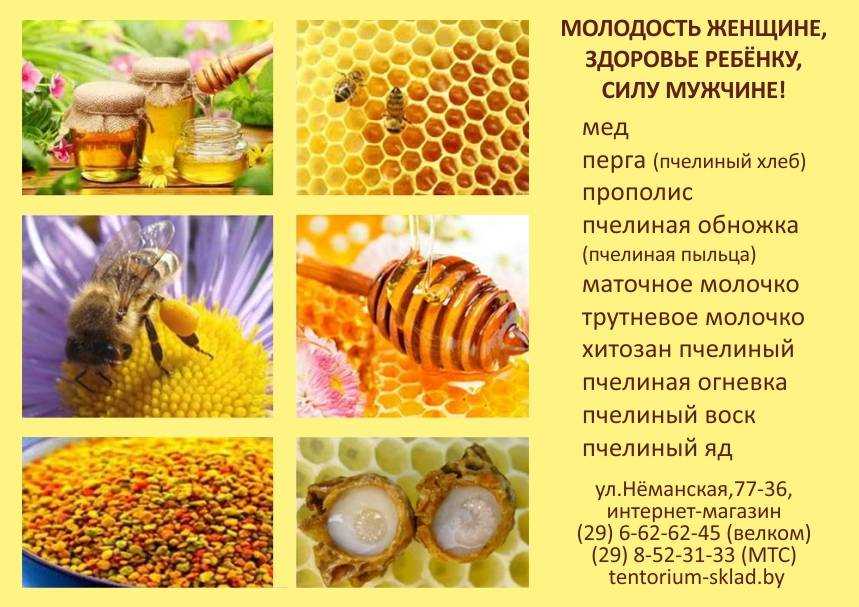
Snails also play an important role in the conservation of biological diversity. They are decomposers of organic material and help maintain balance in the ecosystem. Snails feed on a variety of plant and fungal species, which aids in the dispersal of fungal seeds and spores.
To conserve the biodiversity associated with snails, it is important to provide them with suitable living conditions. They need access to shelter, food and moisture. Creating resilient environments for snails, such as woodlots or dedicated gardens, helps conserve snail populations and restore ecosystems.
In general, the conservation of pollen and snails plays an important role in the conservation of biodiversity. This requires creating and maintaining a variety of vegetation, as well as providing suitable conditions for snails. Only in this way can we preserve unique ecosystems and protect biodiversity for future generations.
Interspecific interactions in snail nutrition
Snails are important links in the food chain and play an important role in interspecies interactions in an ecosystem. They can be either herbivorous, feeding on plants and fungi, or omnivorous, including other organisms in their diet.
One of the main interspecies interactions in snail nutrition is interaction with plants. Snails can cause significant damage to plants by feeding on their leaves, stems, and fruits. Some species of snails have specialized in feeding on certain types of plants, which can lead to an imbalance in the ecosystem and a threat to these plants.
In addition, snails can also serve as food for other organisms. Some birds, lizards and insects feed on snails, including them in their diet. This creates a complex web of interspecies interactions where snails are the link that connects different levels of the food chain.
It is also worth noting that snails can interact with other organisms in the process of feeding. For example, some species of snails can be parasitic to other snails, feeding on their eggs or young. This can create competition and affect the snail population in the ecosystem.
In general, interspecies interactions in snail nutrition play an important role in maintaining biodiversity and balance in the ecosystem. The study of these interactions allows us to better understand the functioning of natural communities and take measures to preserve their sustainability.
Snail nutrition and its impact on the ecosystem

Snails are herbivores and prefer to eat a variety of plants. Depending on the type of snail, their diet may include grass, leaves, flowers, fruits, seeds, and tree bark. They may also feed on fungi and even moss. The nutrition of snails has a direct impact on the ecosystem in which they live.
The effect of snails on plants:
- Snails can be both beneficial and harmful to plants. Some species of snails can feed on affected plants, helping to reduce the spread of diseases and pests. However, uncontrolled breeding of snails can lead to an increased need for food and damage to healthy plants.
- Snails can affect vegetation in forests, gardens, and farmlands. They can eat young plants, which can lead to their reduction or extinction. This can affect the composition of the plant community and biodiversity.
The influence of snails on soil and soil:
- Snails can affect the structure of soil and soil. They can mix the layers of the soil and improve its water permeability. Also, snails can help decompose organic material and improve soil fertility.
- However, some types of snails can harm soil organisms and micro-organisms such as bacteria and fungi. This can negatively affect the soil ecosystem and its functioning.
The role of snails in the food chain:
- Snails are an important food for many animals such as birds, lizards, frogs and insects. They serve as a food source for top predators and play a role in maintaining balance in the food chain.
- However, excess numbers of snails can lead to loss of vegetation and a decrease in the abundance of other species, which can compromise ecological sustainability.
In general, the diet of snails has a significant impact on the ecosystem. A balanced snail population is an important component of biodiversity and maintaining ecological balance.
Importance of snail nutrition for the balance of nature
Snails play an important role in the balance of nature through their diet. They are vegetarians and consume a variety of plant materials such as leaves, stems, and fruits. Due to this, snails perform several important functions in the ecosystem.
Destruction of organic material
Snails are important decomposers in the ecosystem. They break down organic material such as falling leaves and dead plants and turn it into nutrients that can be used by other organisms. Through this process, snails help maintain soil fertility and nutrient circulation in nature.
Seed spread

Snails also play a role in the dispersal of plant seeds. They eat the fruits of various plants and then throw them out with their feces. This facilitates the dispersal of seeds to new locations where they can germinate and provide diversity to the vegetation cover. In this way, snails contribute to the conservation of biological diversity and the maintenance of the ecosystem.
Food for other organisms
Snails also serve as a food source for other organisms in nature. They are food for various animals such as birds, lizards and toads. This allows snails to enter the food chain and maintain a balance in the ecosystem by providing food for other species.
Thus, the nutrition of snails is essential to the balance of nature. They act as decomposers, seed distributors, and food sources for other organisms. By supporting biodiversity and nutrient circulation, snails play an important role in the ecosystem and nature conservation.

